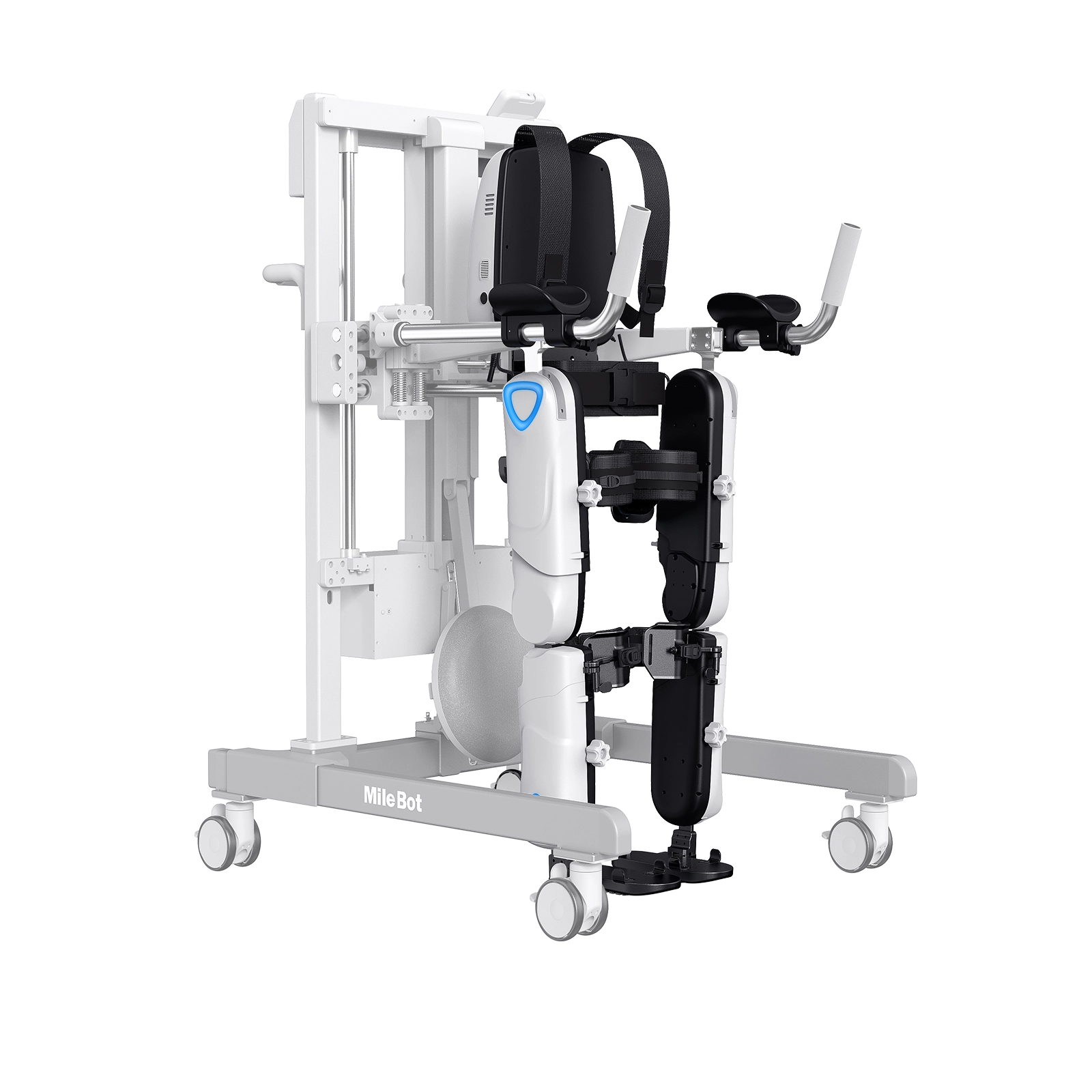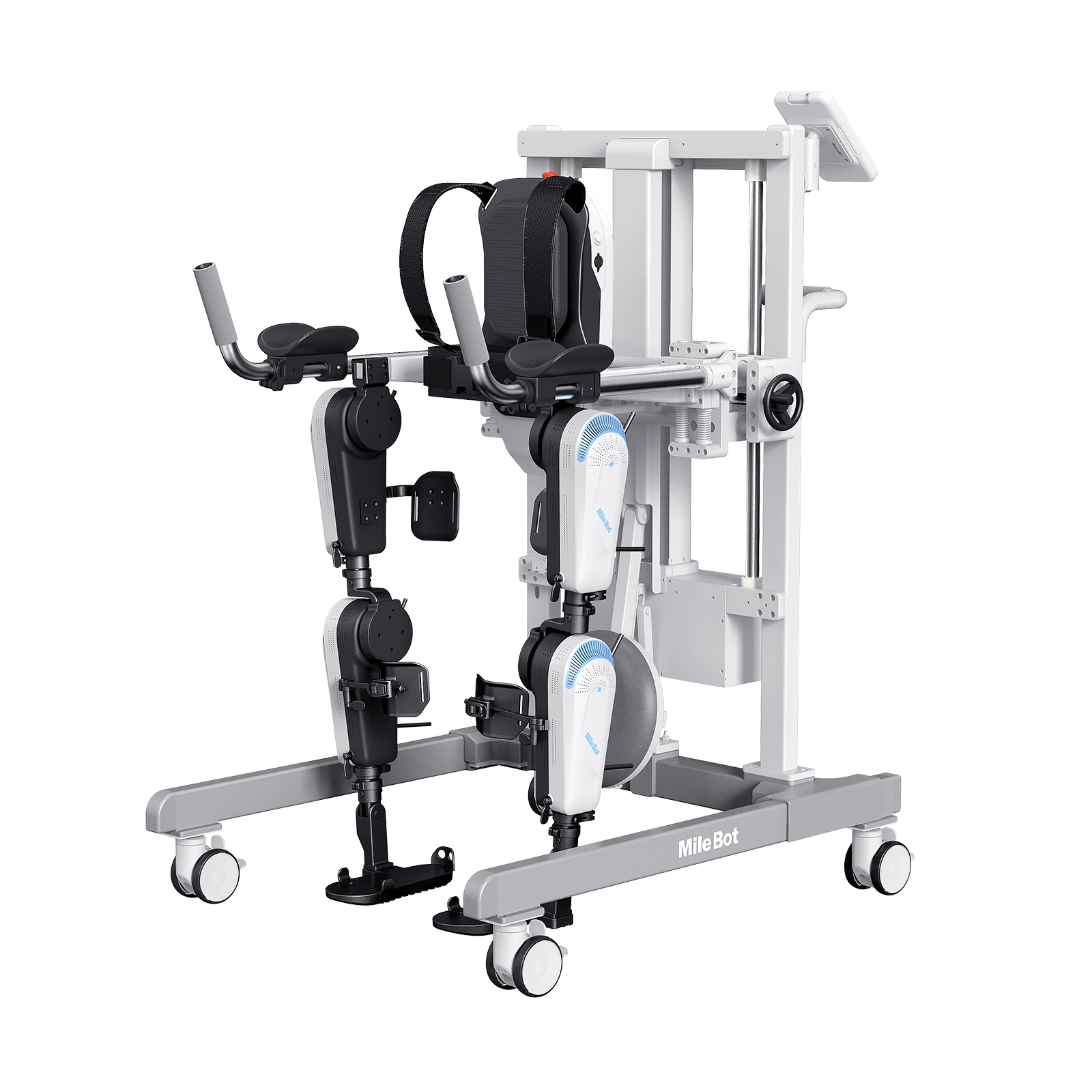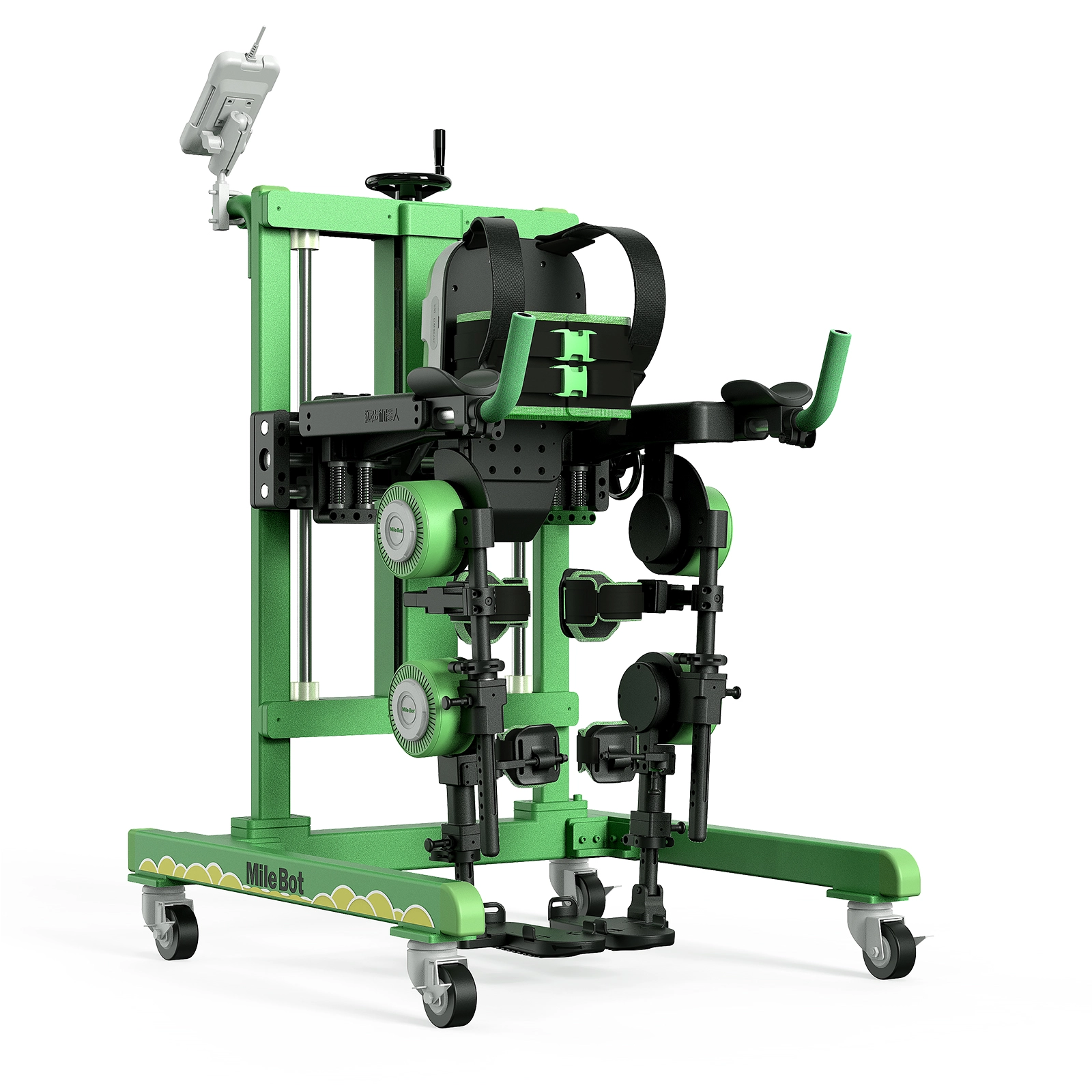MileBot Robotics specializes in various types of rehabilitation robots for Multiple Sclerosis. Our comprehensive product range includes the Lower Limb Rehabilitation Robot BEAR (H Series), BEAR (A Series), RELAX (C Series), and Gait Assist Systems MAX (M and F Series). These devices are designed to improve mobility and support neuroplasticity, offering tailored therapy to address the unique needs of each patient. Our technology ensures effective and efficient rehabilitation, enhancing the quality of life for those affected by Multiple Sclerosis.



Multiple Sclerosis (MS) is a chronic autoimmune disease that affects the central nervous system, leading to a range of physical and cognitive impairments. Traditional rehabilitation methods often fall short in addressing the complex needs of MS patients, which is why innovative solutions such as the MS exoskeleton are increasingly being explored to support mobility and enhance recovery outcomes.
Robotic exoskeletons are wearable devices designed to support and enhance the user's natural movements. These devices are equipped with sensors, actuators, and advanced algorithms to assist in walking and other motor functions.
The future of robotic exoskeletons in MS rehabilitation looks promising. Ongoing research and development in medical robotics are expected to yield even more advanced and accessible solutions, further revolutionizing the field of neurological rehabilitation, with options from Milebot making such technology increasingly attainable for patients and clinics.

Multiple Sclerosis (MS) is a debilitating autoimmune disease that affects the central nervous system, leading to a wide range of symptoms including muscle weakness, coordination issues, and cognitive impairments. Effective management of MS requires a multifaceted approach, and exoskeleton for ms patients is emerging as a revolutionary tool in this field.
Exoskeleton robotics, also known as powered exoskeletons, are wearable devices that assist in movement. These devices are equipped with sensors, actuators, and advanced algorithms to detect the user’s intentions and provide the necessary support. They can be particularly beneficial for MS patients who struggle with mobility issues.
How Exoskeleton Help MS Patients
Multiple sclerosis (MS) often brings progressive challenges: muscle weakness, balance loss, fatigue, and reduced mobility. A stroke exoskeleton, or more precisely an exoskeleton for multiple sclerosis, offers powerful support in overcoming these barriers. Here’s how:
Regained mobility and gait improvement
Using an MS exoskeleton, patients can walk more naturally. The device supports hip and knee joints to enhance gait symmetry, speed, and endurance—even with limited strength. Studies show powered exoskeletons help MS users cover longer walking distances and improve walking speed.
Muscle strength & coordination boost
The exoskeleton’s mechanical support allows for repetitive training that targets weak muscles, reducing compensatory overuse and helping rebuild coordination. This kind of training can also counteract deconditioning often seen in MS.
Balance, posture & fall risk reduction
MS exoskeletons come with sensors and stability control that provide corrective support. This soft exosuit for sale helps patients maintain better posture, stability during walking, and fewer falls.
Psychological gains & independence
Being able to stand, move, or walk more independently has real impact: boosting confidence, lowering dependence on caregivers, and improving quality of life.
Improved Mobility: Exoskeleton robotics can significantly enhance mobility for MS patients. By supporting and augmenting natural movements, these devices can help patients walk more easily and with better coordination.
Muscle Strength and Endurance: Regular use of exoskeletons can improve muscle strength and endurance, which are often compromised in MS patients. This can lead to better overall physical health and reduced fatigue.
Psychological Benefits: The ability to move more freely and independently can have a profound psychological impact. Increased mobility can boost confidence, reduce feelings of helplessness, and improve overall quality of life.
Accessibility and Cost: One of the main challenges is the high cost of exoskeleton robotics, which can limit accessibility for many patients. However, ongoing research and development are expected to make these devices more affordable and widely available.
Customization and Adaptability: Future advancements in medical robotics aim to create more customizable and adaptable exoskeletons that can meet the specific needs of individual MS patients. This will make the devices even more effective in managing the disease.
Exoskeleton robotics are playing an increasingly important role in the management of Multiple Sclerosis. From improving mobility and muscle strength to offering significant psychological benefits, these advanced devices are revolutionizing the way MS is treated. The growing availability of exoskeleton multiple sclerosis solutions highlights how targeted technologies can enhance rehabilitation outcomes for patients. As technology continues to evolve, the future looks promising for MS patients seeking more effective and accessible rehabilitation options.
Exoskeletons can be beneficial at various stages, but the level of benefit may vary depending on the severity of the condition.
While exoskeletons can improve muscle strength and endurance, they may not directly alleviate fatigue but can help manage it better.
While there are no exoskeletons exclusively for MS, our products such as ms exoskeleton are versatile enough to be used for various neurological conditions, including MS.
